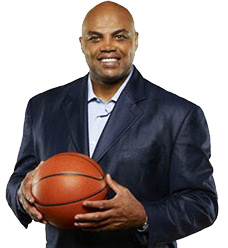In 2016, Charles Barkley marked Black History Month with a daily spotlight on local African-American heroes. Many of them didn’t make it into the history books or even the newspapers of their time. But their stories are inspiring and worth knowing. Here’s another look.
12
Jessie Redmon Fauset
Writer
Jessie Redmon Fauset
Writer
(April 27, 1884 – April 30, 1961)
Known as “the midwife” of the Harlem Renaissance, Fauset was an acclaimed writer/editor who used her pen and others’—including Langston Hughes’—to further the African-American voice in public discourse.
She was the only African American in her graduating class at Philadelphia High School for Girls.
Years later, she was an editor for The Crisis, the NAACP magazine started by W.E.B. Dubois.
The most published novelist of the Harlem Renaissance, she wrote four novels, each with a focus on black culture and the challenges that confronted it.
William Stanley Braithwaite hailed her as “the potential Jane Austen of Negro Literature,” and Deborah E. Mcdowell saw her as a “black woman [who dared] to write—even timidly so—about women taking charge of their own lives and declaring themselves independent of social conventions.”
![]() EDUCATION:
EDUCATION:
- Philadelphia High School for Girls, 1900
- Cornell University, B.A., 1909
- University of Penn, M.A., 1929
ACCOMPLISHMENTS:
- Literary Editor of The Crisis 1919-1926
- Published four novels
- There Is Confusion (1924)
- Plum Bun (1929)
- The Chinaberry Tree (1931)
- Comedy: American Style (1933)
- Graduated as the only African American in her class from Philadelphia High School for Girls
- The first black woman accepted into Phi Beta Kappa, a highly selective academic honor society
FINAL WORD:
“To be a colored man in America…and enjoy it, you must be greatly daring, greatly stolid, greatly humorous and greatly sensitive. And at all times a philosopher…” Fauset said.
Home page image © 2004 City of Philadelphia Mural Arts Program / Don Gensler. Photo by Jack Ramsdale




